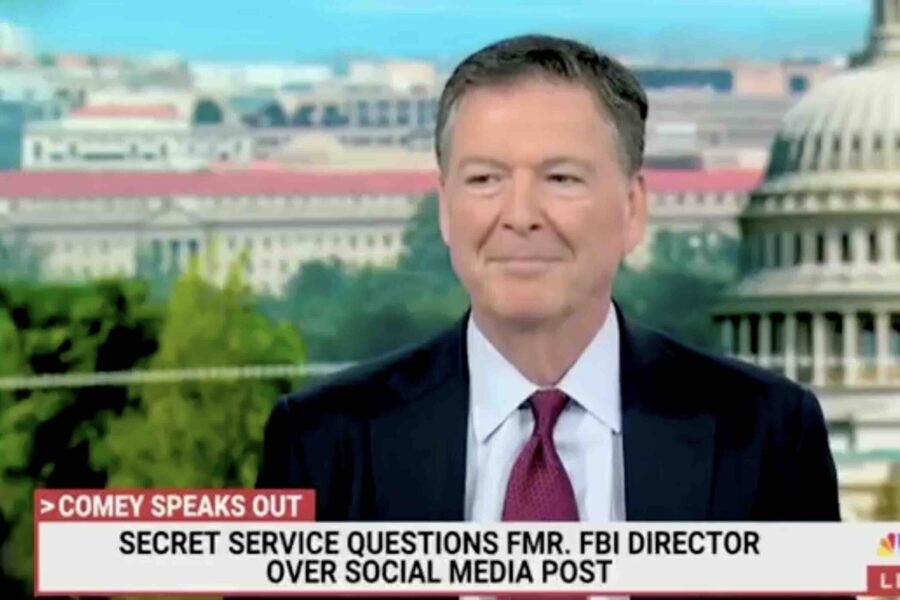Politics
James Comey Smugly Blames His Wife For Threat Against Trump

Former FBI director James Comey shrugged off accusations that he was calling for the assassination of President Donald Trump, offering a milquetoast excuse that his controversial social media post last week was instead a “political message” sent at the urging of his wife.
Comey, who left the Bureau under a cloud in 2017 after investigating the baseless connection between Trump and Russia, received a visit from U.S. Secret Service agents after his allegedly innocuous post about seashells in the shape of the numbers 86 and 47 that he claims to have passed during a beachside stroll.
In his first public remarks since then, Comey 64, told MSNBC host Nicolle Wallace he finds it “hard to regret” the decision to post the image, which some took to be a surreptitious call to kill the 47th president.
“It never occurred to me that it was any kind of controversial thing, but that’s the kind of time we live in,” he said on Monday about the commotion that put him on the radar of the Secret Service.
Comey explained that his morning walk on the beach coincided with the shell formation, allegedly left by someone else, and he shared it thinking it was “some kind of political message.”
However, an extensive public outcry has since caused him to rethink the message, saying in a follow-up post he “didn’t realize some folks associate those numbers with violence” and that the thought “never occurred to me but I oppose violence of any kind so I took the post down.”
His wife joined him for the beach walk, he said, “to prepare for this week, which was the launch of my book, and to think about the book and to prepare to answer questions about it.”
That’s when the couple supposedly encountered the seashell message.
“You know, I think it’s some kind of political message,” he recalled thinking.
It was at that point that his wife suggested the “86” referred to a restaurant customer requesting that an item be removed from the menu
“To me, as a kid [’86’] always meant to leave a place, to ditch a place,” he added.
“I said, ‘That’s really clever.’ So then she said, ‘You should take a picture of that,’ and I did, and then I posted it on my Instagram account and thought nothing more of it.”
But the severe blowback was unexpected, as was the idea that he would ever call for Trump’s assassination, Comey went on.
“I heard through her that people were saying it was some sort of a call for assassination, which is crazy,” he said.
“Even if I think it’s crazy,” Comey took it down because “I don’t want to be associated with violence of any kind,” he said, the Western Journal reported.
WATCH:
Since leaving the FBI, Comey has occasionally emerged as a subplot in President Donald’s post-White House legal sagas and ultimate return to power. He has released books describing his investigations into the Russia collusion hoax as well as the Jan. 6, 2021, riots at the Capitol, ironically denouncing Trump’s rhetoric in the preceding days as inflammatory.
Trump’s social media posts at the time “went far beyond the protection of the First Amendment when he singled out his enemies by name and suggested ‘something should be done’ about them,” Comey wrote.

